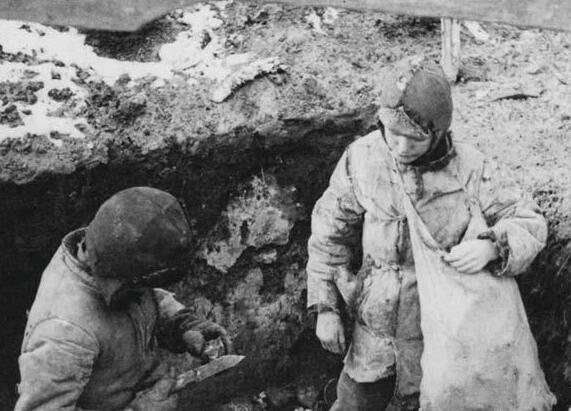Essayer OR - Gratuit
"Social taboos are violated: a parent must decide which child to feed"
BBC History UK
|May 2025
DURING THE SECOND WORLD WAR, DEATHS related to hunger matched or outnumbered military losses.

Famines afflicted regions including the Soviet Union, China, India, Vietnam and Greece. Yet those who perished are rarely remembered in the same way as fallen soldiers.
Starvation is not relegated to the past. The latest UN Hunger Hotspots report identifies places of highest concern as Haiti, Mali, Sudan, South Sudan and Palestine. Sadly, the list of countries where hunger persists is much longer, with violence and conflict the key drivers.
Professor Alex de Waal, research professor at Tufts University and a leading expert on famine, explains that part of the reason famines are not remembered and memorialised is that the experience is so painful to recount, and so full of shame, that people want to forget it. In extremis, social taboos are violated: a parent must decide which child to feed; a neighbour refuses to give food to a neighbour; forbidden foods are eaten; people sell their bodies to survive; some profit from scarcity. The authorities who engineered a famine, or who neglected the population, have no reason to remember it, either.
Cette histoire est tirée de l'édition May 2025 de BBC History UK.
Abonnez-vous à Magzter GOLD pour accéder à des milliers d'histoires premium sélectionnées et à plus de 9 000 magazines et journaux.
Déjà abonné ? Se connecter
PLUS D'HISTOIRES DE BBC History UK

BBC History UK
Hymn to life
Scripted by Alan Bennett and directed by Nicholas Hytner - a collaboration that produced The Madness of King George and The History Boys – The Choral is set in 1916.
1 min
December 2025

BBC History UK
Helen Keller
It was when I was eight or nine years old, growing up in Canada, and I borrowed a book about her from my local library.
2 mins
December 2025

BBC History UK
Spain's miracle
The nation's transition from dictatorship to democracy in the late 1970s surely counts as one of modern Europe's most remarkable stories. On the 50th anniversary of General Franco's death, Paul Preston explores how pluralism arose from the ashes of tyranny
8 mins
December 2025

BBC History UK
Just how many Bayeux Tapestries were there?
As a new theory, put forward by Professor John Blair, questions whether the embroidery was unique, David Musgrove asks historians whether there could have been more than one 'Bayeux Tapestry'
7 mins
December 2025

BBC History UK
In service of a dictator
HARRIET ALDRICH admires a thoughtful exploration of why ordinary Ugandans helped keep a monstrous leader in power despite his regime's horrific violence
2 mins
December 2025

BBC History UK
The Book of Kells is a masterwork of medieval calligraphy and painting
THE BOOK OF KELLS, ONE OF THE GREATEST pieces of medieval art, is today displayed in the library of Trinity College Dublin.
3 mins
December 2025

BBC History UK
Passing interest
In his new book, Roger Luckhurst sets about the monumental task of chronicling the evolution of burial practices. In doing so, he does a wonderful job of exploring millennia of deathly debate, including the cultural meanings behind particular approaches.
1 mins
December 2025

BBC History UK
Is the advance of AI good or bad for history?
As artificial intelligence penetrates almost every aspect of our lives, six historians debate whether the opportunities it offers to the discipline outweigh the threats
8 mins
December 2025

BBC History UK
Beyond the mirage
All serious scholarship on ancient Sparta has to be conducted within the penumbra of the 'mirage Spartiate', a French term coined in 1933 to describe the problem posed by idealised accounts of Sparta.
1 mins
December 2025

BBC History UK
He came, he saw... he crucified pirates
Ancient accounts of Julius Caesar's early life depict an all-action hero who outwitted tyrants and terrorised bandits. But can they be trusted? David S Potter investigates
10 mins
December 2025
Listen
Translate
Change font size

